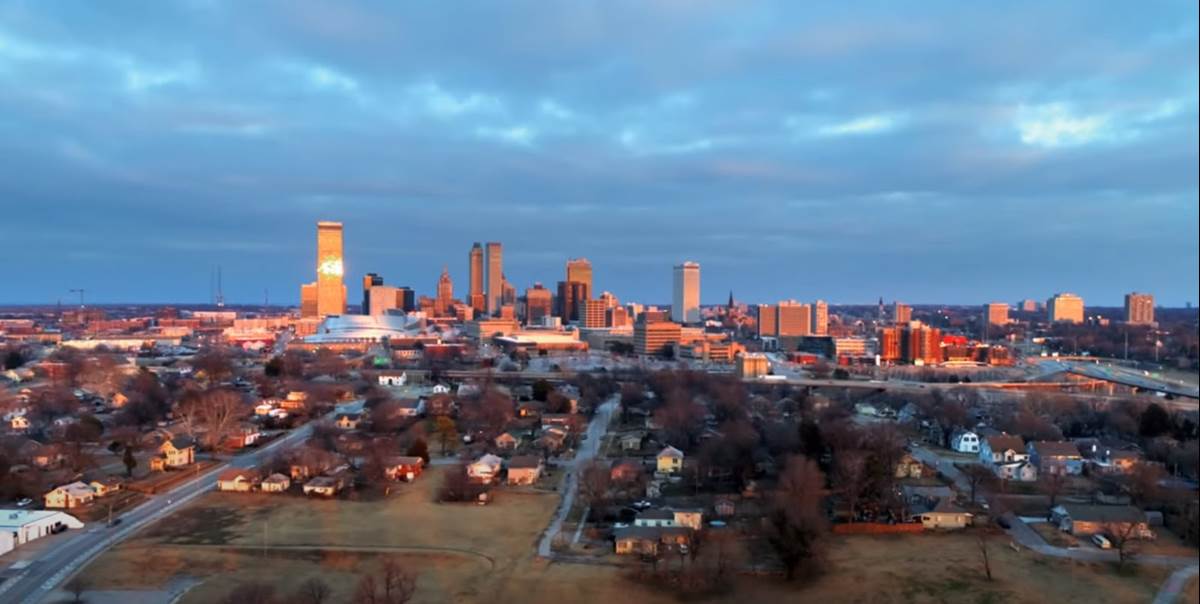National Geographic Documentary Films Partners With Acclaimed Director Dawn Porter in New Feature Documentary Rise Again: Tulsa and the Red Summer
Award-Winning Journalist DeNeen Brown chronicles the investigation of a mass grave in Oklahoma, reporting on the early 20th century's reign of racial terror and legacy of violence in the two-hour special, Rise Again: Tulsa and the Red Summer, set to premiere on National Geographic Friday, June 18, at 9 p.m. ET/PT and available to stream on Hulu the next day, Juneteenth, Saturday, June 19th.
What’s Happening:
- National Geographic Documentary Films is partnering with acclaimed filmmaker Dawn Porter (The Way I See It, Good Trouble: John Lewis) and Trailblazer Studios on a feature documentary that sheds new light on a century-old period of intense racial conflict. Rise Again: Tulsa and the Red Summer comes one hundred years from the two-day Tulsa Massacre in 1921 that led to the murder of hundreds of Black people and leaving thousands homeless and displaced. The film will premiere on National Geographic on Friday, June 18, at 9 p.m. ET/PT. It will also be available to stream on Hulu the next day, Saturday, June 19, commemorating Juneteenth, when the last enslaved Black people in Texas received news of their emancipation, and will air globally in 172 countries and 43 languages.
- Award-winning Washington Post journalist and Oklahoma native DeNeen Brown is at the heart of the film, reporting on the search for a mass grave in her native state. Digging into the events that led to one of the worst episodes of racial violence in America's history, Brown reveals insights into racial-conflict incidents that erupted in the early 20th century. Between 1917 and 1923, when Jim Crow laws were at their height and the Klu Klux Klan was resurging across the nation, scores of Black homes and businesses were razed, and hundreds of Black people were lynched and massacred with impunity.
- Brown's reporting highlights the revived call for justice for victims and survivors. Following a 2018 investigative report, Brown explores the current anti-racism movement in the context of the Tulsa Massacre and the Red Summer. With access to family members of those killed, city officials, archeologists and historians, the film reveals the decades-long effort by descendants and community members to find the victims' bodies and unearth truths that have been suppressed for nearly a century. Rise Again: Tulsa and the Red Summer also untangles the role the media played in covering events at the time in order to reveal the full extent of the nation's buried past.
- Also being covered in a future issue of National Geographic Magazine, the excavation of a possible mass grave in Tulsa will continue early 20th century calls from Black newspapers, which reported on the Red Summer era seeking justice for the dead. The excavation is just one part of the effort to reckon with the past.
- National Geographic Documentary Films' Rise Again: Tulsa and the Red Summer comes on the heels of its highly successful docuseries City So Real, continuing to shed light on social justice and racial equality in America. The banner's most recent films, Rebuilding Paradise, from director Ron Howard, debuted at Sundance 2020, and The Cave, from director Feras Fayyad, was nominated for an Academy Award for Best Documentary Feature in 2020.
- Rise Again: Tulsa and the Red Summer is produced by Dawn Porter's Trilogy Films and Trailblazer Studios in association with National Geographic Studios.
What They’re Saying:
- Dawn Porter: "I'm interested in following the evidence where it leads while giving a voice to those directly affected by the tragic events in Tulsa and throughout the Red Summer. This is the time to tell this story, which is not only about Black victims but also about Black resistance. There is so much our society is currently reckoning with, but seeking the truth about the damage wrought by unchecked mob violence against the Black community is a starting point. Sadly, the racism motivating the Red Summer has not been eradicated. It is clear, we must acknowledge these wrongs if healing is to begin.
- DeNeen L. Brown: "In Tulsa, there is an increased urgency to properly honor Black people who were murdered during the 1921 Tulsa Race Massacre. Black activists in Tulsa have been working for years to bring national attention to this horrific chapter in U.S. history, in which as many as 300 Black people were killed by white mobs, and the prosperous Black community of Greenwood was destroyed. This year, as the city recognizes the 100th anniversary of the massacre, Tulsa finds itself at a point of inflection to learn from its horrific history and bring justice to survivors and descendants who have been denied true justice for too long."

